Point of view: everyone has one.
“Every Christian needs to see this movie.”
We had said the words at the same time, turning in our theatre seats to face each other as the credits rolled back in 1991. Robin and I had just witnessed what every human knows: we are small and know there is something out there bigger than ourselves.
Grand Canyon (Lawrence Kasdan, 1991) concerns what controls life. Mack, Kevin Kline’s character, has just left a Laker’s game. He tries to take a short cut, gets lost, and his car breaks down in gang territory. He waits for the tow truck after a phone call. Thugs drive by, seeing him as an easy mark. About to be brutalized, he is physically saved by the tow-truck driver. Waiting for his car repair, he listens to Simon, the driver (Danny Glover), give his philosophy of life. The scene opens with Glover’s and Kline’s characters sitting on a curb, talking. The metaphor of “the big shark” is used to portray the boys who wanted to do Kline’s character harm. But Simon is careful to place life in perspective. His trip to the Grand Canyon reminded him how small “we people are.” Simon’s perspective in life has forever altered his view of life.
tries to take a short cut, gets lost, and his car breaks down in gang territory. He waits for the tow truck after a phone call. Thugs drive by, seeing him as an easy mark. About to be brutalized, he is physically saved by the tow-truck driver. Waiting for his car repair, he listens to Simon, the driver (Danny Glover), give his philosophy of life. The scene opens with Glover’s and Kline’s characters sitting on a curb, talking. The metaphor of “the big shark” is used to portray the boys who wanted to do Kline’s character harm. But Simon is careful to place life in perspective. His trip to the Grand Canyon reminded him how small “we people are.” Simon’s perspective in life has forever altered his view of life.
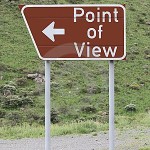 Movies do us the service of either confirming our beliefs or showing us a different point of view. Our problem, however, is that we tend to believe unconsciously. At times, movies form our thinking. We begin to adopt and then adapt to current cultural thinking, instead of beginning with a Christian premise. When we watch Grand Canyon or any other movie we are both bringing our point of view and witnessing a point of view. We follow a pattern of thinking.
Movies do us the service of either confirming our beliefs or showing us a different point of view. Our problem, however, is that we tend to believe unconsciously. At times, movies form our thinking. We begin to adopt and then adapt to current cultural thinking, instead of beginning with a Christian premise. When we watch Grand Canyon or any other movie we are both bringing our point of view and witnessing a point of view. We follow a pattern of thinking.
- We make assumptions every day
- Our assumptions dictate our daily life
- We live unconsciously or consciously
- But our assumptions drive our living
- We may have different assumptions
- But we all have a view of the world
 Our point of view drives our understanding of everything. Our point of view is built on foundational questions everyone asks, answers for which everyone is searching.
Our point of view drives our understanding of everything. Our point of view is built on foundational questions everyone asks, answers for which everyone is searching.
- Reality “What is real?”
- God “What is God?”
- Humanity “Who are we?”
- Purpose “Why are we here?”
- Knowledge “How do we know anything?”
- Ethics “What is right or wrong?”
- History “What happened in the past?”
- Afterlife “What happens when we die?”
Movies bring a viewpoint to each of these questions. The Christian response is to evaluate the point of view from a biblical standpoint.
1. “What is real?” The Matrix asks the question, “Is there another world for which I am responsible?” Morpheus (Lawrence 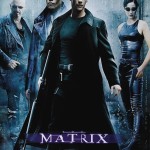 Fishburne) asks Neo (Keanu Reeves) “What is real?” Neo is “inserted” inside a computer program with Morpheus asking, “How do you define ‘real’? If real is only what you can taste and see, then real is only electrical signals interpreted by your brain.” Reality is more than our five senses. Another world exists to which we must give an account. We were made for another world. Woody Allen makes a similar statement about the nature of our existence in The Purple Rose of Cairo. A despondent, unhappy woman finds joy and hope with a man right out of the movies—literally. The conflict of fantasy as unfulfilling and reality as depressing shows the need for another source of contentment.
Fishburne) asks Neo (Keanu Reeves) “What is real?” Neo is “inserted” inside a computer program with Morpheus asking, “How do you define ‘real’? If real is only what you can taste and see, then real is only electrical signals interpreted by your brain.” Reality is more than our five senses. Another world exists to which we must give an account. We were made for another world. Woody Allen makes a similar statement about the nature of our existence in The Purple Rose of Cairo. A despondent, unhappy woman finds joy and hope with a man right out of the movies—literally. The conflict of fantasy as unfulfilling and reality as depressing shows the need for another source of contentment.
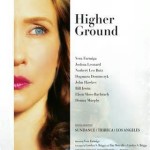 2. “Who is God?” Higher Ground (2011, Vera Farminga) displays a woman’s doubts about her faith in God. Contact critiques a purely earth-bound view of life. The Apostle examines a minister’s faults-to-faith belief. Mission to Mars suggests that alien life forms are the true gods, having “seeded” earth with their DNA. Bruce Almighty makes the claim “God is within you.” Each movie in one way or another acknowledges or ignores God’s presence in life. What viewers do with that point of view shows a belief.
2. “Who is God?” Higher Ground (2011, Vera Farminga) displays a woman’s doubts about her faith in God. Contact critiques a purely earth-bound view of life. The Apostle examines a minister’s faults-to-faith belief. Mission to Mars suggests that alien life forms are the true gods, having “seeded” earth with their DNA. Bruce Almighty makes the claim “God is within you.” Each movie in one way or another acknowledges or ignores God’s presence in life. What viewers do with that point of view shows a belief.
3. “Who are humans?” Robert Lewis Stevenson’s classic Dr. Jekyll and Mr. Hyde (1941) says both good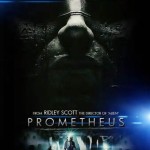 and evil reside within the human person. In a dinner party scene there is a conversation about human nature. The question left lingering? “Is it wise or right to tamper with the human soul?” Ridley’s Scott’s vision of human origins in Prometheus begs the question, “Is Christian faith an option when all human attempts to discover beginnings are exhausted?” Perhaps the best display of the tension between human dignity-depravity is displayed by the Smeagol-Gollum character in Lord of the Rings. Human life is what movies are made of and each one expresses our response to this life.
and evil reside within the human person. In a dinner party scene there is a conversation about human nature. The question left lingering? “Is it wise or right to tamper with the human soul?” Ridley’s Scott’s vision of human origins in Prometheus begs the question, “Is Christian faith an option when all human attempts to discover beginnings are exhausted?” Perhaps the best display of the tension between human dignity-depravity is displayed by the Smeagol-Gollum character in Lord of the Rings. Human life is what movies are made of and each one expresses our response to this life.
How we answer these questions is based on how we view life; because everyone has a point of view.
(Part Two Next Week)
Mark has been teaching his students the eight worldview questions since the 1980’s. But the questions have been haunting humans ever since Genesis. Dr. Mark Eckel now has opportunity to train the trainers at Capital Seminary and Graduate School.

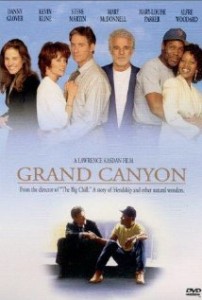
It’s fascinating, the messages that can be found in movies. I remember watching the movies “Megamind” and “Brave”, the whole idea of “making our own destiny”. You can find that message in Disney’s “Prince of Persia” too.
And, annoyingly, you can find it in video games. There’s a game we have called “Kingdoms of Amalur”. The message is that your character is free to make his/her destiny however he/she chooses. And in the game Diablo 3, that same message appears when the hero is fighting to save heaven from Diablo and an infernal invasion.
The message is in so many things that it’s starting to really annoy me. It’s EVERYWHERE. I can’t stand it. When I discovered it in Diablo 3 I just looked at my wife, and she said, “I know. I know. Just finish the game.”
What’s ironic about these messages is that the characters were destined by the writers to succeed. Merida, in “Brave”, didn’t change her destiny at all. Her destiny was already set before her. She just went along with it THINKING that she changed her destiny. Same in Megamind. Same in the video games. The characters are destined.
Are we, perhaps, just as deluded? Do we think that we shape our destiny when in fact our destiny has already been set before us? Does this take our ability to choose away, or would we have chosen our destiny anyway? And does the existence of destiny lead to determinism? If so, how so?
In a Christian context, destiny is Biblical. But some of the same questions can be asked. Furthermore, does God have a destiny only for those whom He predestined, or does everyone have a destiny? And if everyone has a destiny that He has set before them, is this destiny always good?
Ah, the pleasures of theological-philosophical thinking, especially when it is tied to movies. Thank you for the lesson, Dr. Eckel. I remember you showing clips from the Matrix and that Woody Allen movie in our philosophy class.
Also, have you seen the new movie “Frozen”? If so, what did you think of the message about true love? I thought that was very different and, frankly, was impressed.
It’s nice to see that there are movies out there with that kind of message. But one must wonder–what gives them (the writers) this idea? We speak messages because we believe them to be true, yes? Well what makes that true? What makes that kind of love preferable? What makes that kind of love true?
It all goes back to one’s point of view. The same is true about destiny. If we’re Humanists, of course our message is going to be “we make our own destiny”. There’s no God out there to make it for us. What is amazing is the fact that Christians watch these movies and many of them likely fail to realize the message that is being presented. It’s a very humanistic message.
But if we’re not humanists–what then do we do with movies like “Brave” and “Megamind”? In my case–poke fun at the fact that the characters are STILL destined.